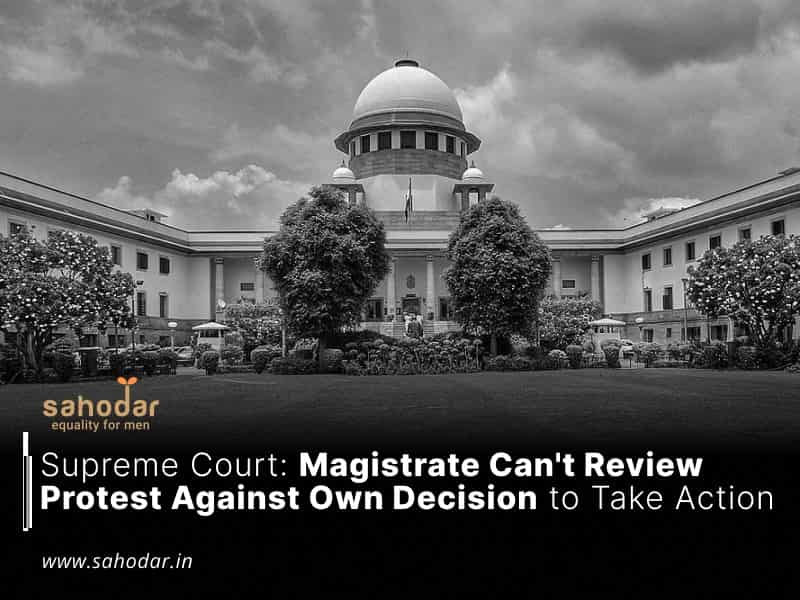In a recent ruling, the Supreme Court clarified that a Judicial Magistrate does not possess the jurisdiction to entertain a protest petition challenging their own order of taking cognizance based on a final report. The case in question involved a Chief Judicial Magistrate who, after receiving a final report from the Crime Investigation Department, took cognizance against a singular accused for the offense of murder.
Following this, the father of the victim, feeling aggrieved, filed a protest petition, asserting that the Magistrate had failed to take cognizance against other implicated individuals. In response, the Chief Judicial Magistrate issued a subsequent order on November 3rd, taking cognizance against the remaining accused. Dissatisfied with this, the latter group filed a petition before the High Court under Section 482 of the Code of Criminal Procedure (CrPC). Despite the High Court’s dismissal, the appellants sought redress in the Supreme Court.
The High Court, in rejecting the appellants’ petition, based its decision on the precedent set by the Supreme Court in Nupur Talwar vs. CBI and Anr (2012) 2 SCC 188. The appellants argued before the Supreme Court that Nupur Talwar was distinguishable as it pertained to a Magistrate’s competence to entertain a protest petition against a closure report offered by the investigating agency.
Agreeing with the appellants, the Supreme Court expressed astonishment at the Magistrate’s consideration of a protest petition challenging their own order of cognizance. The Court unequivocally stated that a Magistrate lacks the inherent authority to alter a previous order taking cognizance.
The Court observed:
“Such a course was not permissible as it was not open for the learned Chief Judicial Magistrate to entertain a protest petition against his earlier order of taking cognizance. The order dated 3rd November, 2009, amounts to modification of the earlier order dated 9th April, 2009, which was not permissible as there is no power conferred on the learned Judicial Magistrate to modify earlier order of taking cognizance.”
The court noted that Nupur Talwar addressed an entirely distinct situation. Upholding the appeal, the court nullified the subsequent order issued by the Chief Judicial Magistrate, wherein cognizance was taken against the appellants.

